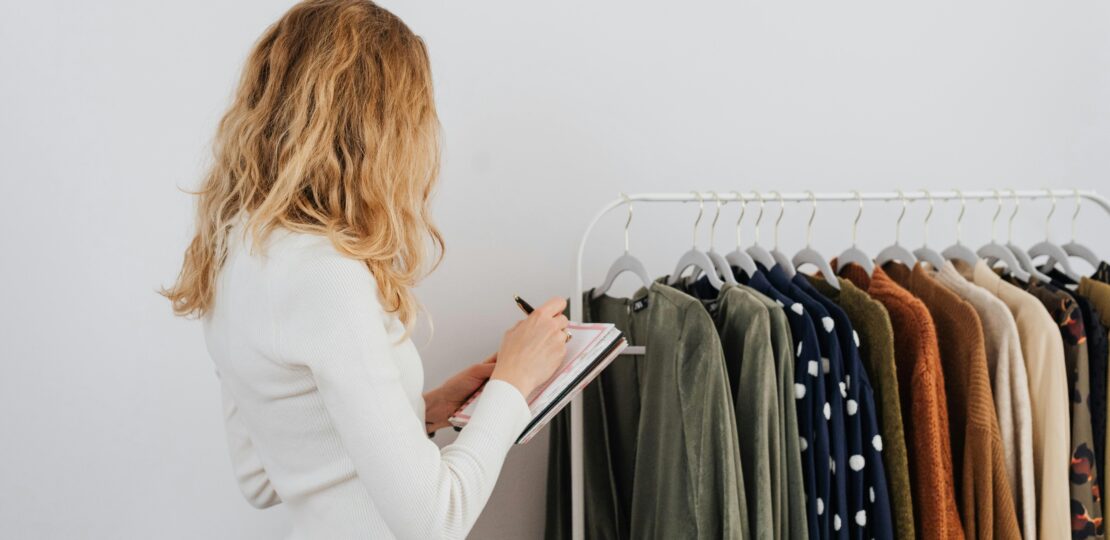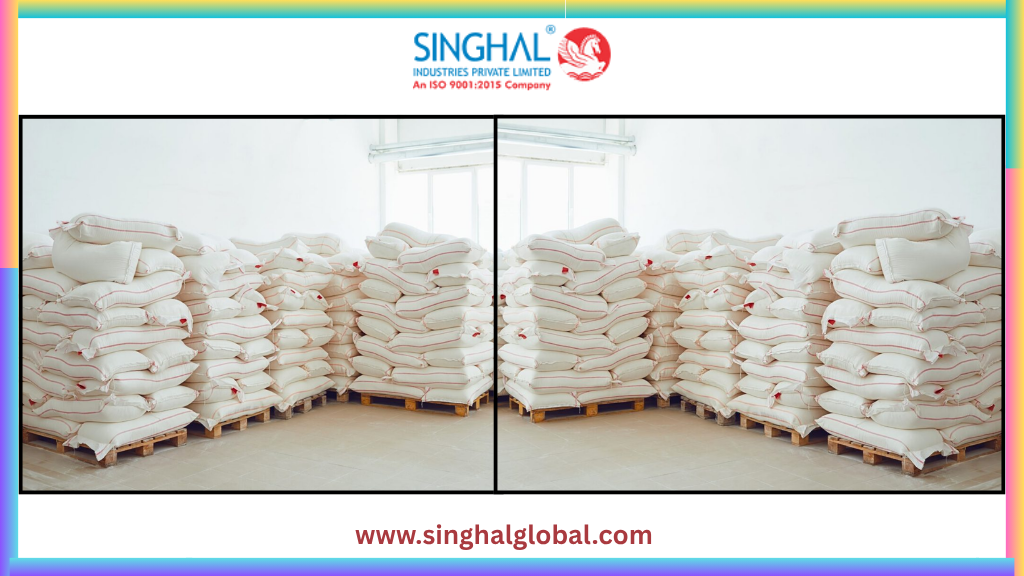The Rise of B2B Wholesale Clothing: Building Smarter Supply Chains for the Fashion Future
October 27, 2025 | by IoT Development Company

The Evolution of B2B Wholesale Clothing
The global fashion industry thrives on adaptability — trends evolve overnight, consumer habits shift rapidly, and supply chains must respond instantly. At the core of this ever-changing ecosystem lies B2B wholesale clothing, the business-to-business engine that keeps retailers stocked, designers inspired, and consumers satisfied.
From independent boutiques to online fashion platforms, wholesale clothing serves as the foundation of inventory management, cost efficiency, and brand scalability. But as the digital era reshapes trade, B2B wholesale has transcended traditional models, evolving into a data-driven, technology-powered system focused on speed, transparency, and sustainability.
This article explores the transformation of wholesale clothing in the B2B landscape — from sourcing and production to e-commerce integration and ethical practices. Whether you’re a retailer, supplier, or fashion entrepreneur, understanding this shift is essential to staying competitive in the modern apparel market.
Understanding B2B Wholesale Clothing: The Business Backbone of Fashion
In simple terms, B2B wholesale clothing refers to the bulk purchasing and distribution of apparel from manufacturers or suppliers to businesses such as retailers, boutiques, and e-commerce brands. The key lies in the economy of scale: buying large quantities at discounted prices for profitable resale.
But beyond bulk buying, B2B wholesale plays a vital strategic role. It ensures consistent stock availability, standardizes quality, and allows retailers to respond efficiently to market trends. Unlike B2C (business-to-consumer) sales, B2B involves higher order volumes, long-term contracts, and relationship-based transactions that emphasize trust and reliability.
Modern B2B wholesale platforms, such as Wholesale Connections, have redefined this process — enabling businesses to browse, compare, and purchase wholesale clothing online with ease, transparency, and real-time updates.
How Digital Transformation Redefined Wholesale Fashion
Gone are the days when retailers relied solely on trade shows and in-person negotiations. Today, the digital revolution has transformed how B2B wholesale clothing operates. Online wholesale marketplaces now allow global access, connecting brands, designers, and retailers instantly.
1. E-Commerce Integration
Platforms offering integrated order management, inventory tracking, and logistics tools have streamlined operations. Retailers can manage entire product lines from a single dashboard — from sourcing to delivery.
2. Data-Driven Decision Making
Advanced analytics now guide buying decisions. Retailers use real-time sales data, market trends, and customer insights to predict demand and optimize stock levels.
3. Virtual Showrooms and AI Tools
Virtual showrooms let buyers explore collections digitally, while AI-driven algorithms suggest best-selling styles based on seasonality and regional preferences.
4. Global Reach with Local Focus
Suppliers can now serve international clients while maintaining localized product offerings, helping brands cater to regional styles and cultural aesthetics.
The result? A smarter, faster, and more responsive B2B wholesale clothing ecosystem.
Key Advantages of B2B Wholesale Clothing for Retailers
To understand the growing popularity of wholesale clothing, it’s important to look at the benefits it offers to businesses.
• Cost Efficiency
Buying apparel in bulk significantly reduces per-unit costs, allowing retailers to maintain healthy profit margins while offering competitive prices to customers.
• Variety and Flexibility
From casual wear to seasonal collections, wholesalers provide a wide range of styles and fabrics, helping retailers adapt to fashion trends without large production investments.
• Reliability in Supply Chains
Wholesale partnerships ensure consistent stock flow, minimizing risks of product shortages or delivery delays — a critical factor in fast-moving retail environments.
• Scalability
Whether launching a boutique or expanding a multi-brand store, B2B wholesale clothing offers scalability without the burden of direct manufacturing costs.
• Quality Assurance
Most wholesalers work with certified manufacturers who meet international quality standards, ensuring consistent quality and durability across collections.
The Wholesale Clothing Supply Chain: From Factory to Fashion Rack
Behind every garment on a retail rack lies a global network of producers, distributors, and logistics providers — a seamless chain powered by B2B wholesale.
-
Manufacturing and Sourcing: Factories produce clothing in bulk, often specializing in specific materials or garment types.
-
Wholesalers and Distributors: They purchase goods directly from manufacturers and resell them to retailers at bulk prices.
-
Retailers and E-Commerce Stores: Businesses buy these products, adding branding, marketing, and pricing strategies before selling to consumers.
-
Consumers: The end of the chain, whose buying preferences continuously shape demand patterns and production cycles.
Efficient B2B operations ensure this chain runs smoothly — minimizing costs, waste, and logistical complications.
Sustainability and Ethical Practices in Wholesale Fashion
Sustainability has become one of the defining challenges and opportunities in the wholesale clothing industry. Modern consumers are increasingly conscious of how their clothes are made, pushing B2B suppliers to adopt ethical and eco-friendly approaches.
1. Sustainable Materials
Wholesalers now prioritize organic cotton, recycled polyester, and biodegradable fabrics. These materials reduce environmental impact without compromising on quality or comfort.
2. Transparent Supply Chains
Digitization enables traceability, allowing buyers to verify where and how clothing was produced. Transparency builds trust and helps brands align with ethical standards.
3. Waste Reduction
By producing and purchasing strategically, wholesalers minimize overproduction and reduce textile waste — a growing issue in the fast fashion sector.
4. Fair Trade Partnerships
Ethical collaborations ensure workers receive fair wages and safe working conditions, enhancing the overall value of B2B wholesale partnerships.
This alignment between sustainability and business ethics not only satisfies consumer expectations but also strengthens long-term brand reputation.
Emerging Trends Shaping the B2B Wholesale Clothing Industry
Fashion evolves, and so does wholesale. The latest trends are redefining how businesses approach clothing distribution and marketing.
-
Digital Marketplaces: Platforms like Wholesale Connections offer thousands of SKUs, detailed product information, and instant ordering capabilities for retailers worldwide.
-
Micro and Small Retail Growth: Independent stores and small e-commerce brands are booming, supported by low-minimum wholesale buying options.
-
Personalized Offerings: AI-driven personalization allows wholesalers to recommend items tailored to a retailer’s demographic and geographic audience.
-
Eco-Certifications: Ethical labels and sustainability certifications are now crucial in wholesale transactions.
-
Global-to-Local Models: Businesses are blending global supply chains with localized stock, catering to diverse customer bases while managing logistics efficiently.
These shifts signal an exciting, technology-enhanced future for the wholesale clothing ecosystem.
Wholesale Buying Tips for Retailers
Before entering a B2B clothing partnership, retailers should consider the following tips:
-
Research Suppliers: Verify supplier credibility, product quality, and trade history.
-
Start Small: Begin with smaller orders to test market response before scaling up.
-
Negotiate Terms: Establish clear agreements regarding pricing, shipping, and returns.
-
Diversify Collections: Offer a mix of essentials, seasonal trends, and statement pieces.
-
Leverage Data: Use analytics to identify top-selling categories and adjust orders accordingly.
-
Prioritize Ethical Partners: Align with wholesalers who follow sustainable production practices.
Smart wholesale decisions build resilience and long-term profitability.
Why the Future of Fashion Belongs to B2B Wholesale Clothing
The future of fashion retail is deeply intertwined with the growth of B2B wholesale. As technology bridges global supply gaps and sustainability redefines production ethics, the wholesale model stands as the perfect intersection of scalability and responsibility.
By combining innovation with accessibility, platforms like Wholesale Connections are democratizing the wholesale experience — enabling both new entrepreneurs and established brands to thrive. The ability to source diverse, high-quality apparel efficiently is no longer a luxury; it’s a necessity in the digital retail age.
Conclusion: Redefining Wholesale for the Modern Marketplace
The B2B wholesale clothing industry is no longer about bulk orders alone — it’s about building smart partnerships, leveraging technology, and aligning business with conscious consumption. From AI-powered sourcing to sustainable practices, the modern wholesale landscape offers endless opportunities for innovation.
Retailers who adapt to these changes — embracing data-driven strategies and ethical sourcing — will not just survive but lead the next wave of fashion evolution.
In an interconnected world where supply meets style, B2B wholesale clothing remains the bridge that turns global creativity into accessible fashion for all.
RELATED POSTS
View all



